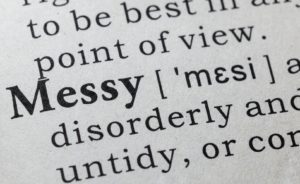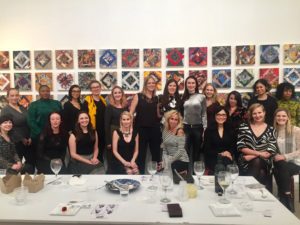Of the five trends that the Women’s Philanthropy Institute (WPI) shared for 2022 and beyond, one jumped out at me: Trust-based philanthropy. Jeannie Sager, WPI Director, noted that based on their research, Trust is a 6th T and should be added to the five that represent the holistic approach taken by many women philanthropists.
It was a ‘slap-my-forehead’ moment for me. Of course!! This makes so much sense. Women are relational in their philanthropy. Trust is built through the consistent actions that occur within a relationship. I saw immediately that trust is embedded in the current 5 Ts for women donors and volunteers:
Time:
Volunteering time allows women to help beneficiaries immediately but also to observe how the organization operates and discern if this is a place she trusts.
Talent:
When her contribution and/or leadership are valued, sharing her talents not only provides meaningful impact, but also builds trust.
Treasure:
She builds trust when she sees her gift is used as intended, and when she is acknowledged with the right name and as a decisionmaker.
Ties:
A woman will share names from her network when she trusts that those connections will be invited in to contribute more than just money.
Testimony:
When she trusts that a nonprofit authentically sees, values, and listens to her, she is more likely to advocate for the mission with her family and friends.
I first wondered if trust is the foundation upon which the five Ts rest. However, the more I thought about what I’ve witnessed across scores of interactions with highly engaged women, I agree wholeheartedly with Jeannie that trust IS the 6th T.
Trust-based philanthropy
I’ve seen trust-based philanthropy play out in two ways. The first is the no-strings-attached model MacKenzie Scott used with her nearly $6 billion in gifts in 2020-21. She selected nonprofits she trusts (by vetting the leadership and their impact) and then got out of the way. Some have written that they wish this way of giving would be practiced more often.
The second is earning women’s trust. Let’s be honest – until recently, women were often visited by nonprofits IF they have treasure. Women were not seen holistically with a broad range of resources to offer. Fundraising has been about connecting with those who are privileged (read – have money) to help the mission. It has been unconsciously about power – those with dollars wielded power and influence on boards, in campaigns, and in who has been recognized as philanthropic. That fundraising approach has been successful – in 2021, Americans contributed $471.44 billion to charity.
That approach is softening. More leaders understand that many individuals with passion for their mission but diverse experiences in philanthropy have been overlooked. More institutions have started affinity groups, collective giving opportunities, and are asking for input and leadership from people of diverse backgrounds and not necessarily with obvious wealth.
What happens when you are invited to an event or a meeting or asked for input when you never were invited before? Are you cautious? Feel like it is an empty gesture? You certainly don’t trust at first.
That is what happens when women are invited into the philanthropic culture of an organization. They don’t trust that all they have to offer is really wanted. I hear from women over and over, “I’m an alum but they never invited me to an event until they learned what I inherited from my parents.” Or, “They came to me with their proposal. They didn’t ask about or try to listen to the impact I envision is possible.”
Research affirms that trust is important to women. The Give.org 2019 Donor Trust report found that women trust charities less than men. Using the Edelman Trust Barometer, they revealed:
“72.4% of women (as compared to 66.9% of men) rated the importance of trust before giving as 9 or 10 on a 10-point scale. Only 17.5% of women (as compared to 20.9% of men) scored their trust in charities as a 9 or 10 on a 10-point scale. While there is ample space to build trust among both genders, the trust gap is wider for women.”
The report further noted that women are also more likely to trust opinions from friends or family about a charity (24.2%) than men (17.4%), underscoring the importance of trusted relationships to bring women towards a nonprofit.
If a woman cares deeply about your mission, you better believe that she is paying attention – to the leadership, to volunteers who are involved, to the challenges as well as the opportunities where she can help. And yes, of course, she knows money is important, but she also has curiosity, ideas, skills, and a network that might also help achieve the goals you’ve set. She wants to partner with you, not just write a check.
To see a woman as a partner, not only as a donor, is to create a relationship with her and many others, and not connect with her like this is a transaction. It is to work with each other, rather than ask her to do something for you.
Ahhhh, I can almost hear you reacting: “We don’t have time for this; we have so many pressures as it is.” “Where will we get the capacity to work together, to build partnerships?” I get it, I’ve been in your seat. I have two responses:
- Demographics have changed. If you don’t adapt, you are not only missing connections with half your population of donors, but you are losing that part of the population which is now the primary influencer or decision-maker in household philanthropy.
- These adaptations aren’t harder, they are just different. AND you will build trust, bringing you smart, passionate, loyal, giving partners for years that also bring in their networks.
Trust is built over time, for sure, but it doesn’t need to take a long time. It takes an intentional mindset to build the trust that women seek with you.
You build trust when you:
Don’t make assumptions about who makes a gift.
It is hard to always discern who was the decision-maker in a household gift. You can no assume that it is who signed the check. Knowing this, Shaun Keister, Vice Chancellor for Development and Alumni Affairs at UC Davis, took the simple step of creating a business rule to put the woman’s name first when writing to a couple. He regularly receives thank you notes and comments from women who have noticed and appreciated this change.
Showcase women in your materials.
Fundraising and communications teams are under time crunches and often pull pictures, messages and articles that have worked in the past. A pause to doublecheck that you are presenting a balanced number of visuals and stories about women demonstrates that women are valued. I recently heard a suggestion from a Missouri State University donor: “Showcase women. Let women see women leaders on campus, women of color, women having success. I can’t join what I can’t see.”
Test ideas for new approaches with women who are diverse across age, multiple identities, and talents.
This approach demonstrates you are listening to learn, that all voices count equally, and their partnership will bring forward meaningful change that you couldn’t do alone.
An alumna of Elon University shared that her philanthropy experience began at Elon and in particular as a member of the Elon Alumni Board where she heard about other groups (Golden Alumni, Young Alumni Council, etc.). Working with the University, she led the creation of the Elon Black Alumni Network (ELAN). She felt it was important for the Black community to know what was going on at Elon because she knew that when she didn’t feel included in conversations or decisions, she didn’t feel she could play a part in shaping the future of the university. This important long-standing alumni group would not have been created without her perspective, talent, and network.
These and many other simple steps, done consistently over time, build trust. When women trust you and your organization, they are more loyal, highly engaged, are willing to dig into the challenges and opportunities, bring their network forward to help, and continue to grow their giving in significant ways. Understanding the importance of the critical 6th T will help you create trusted philanthropic partnerships with women who will provide innumerable resources for your organization through thick and thin.






